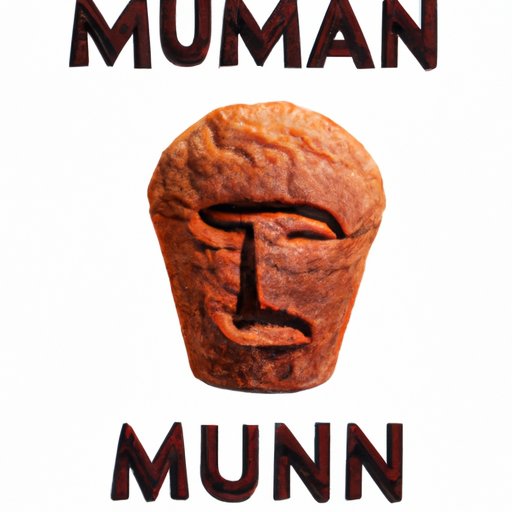
Introduction
Almost everyone is familiar with the popular children’s rhyme “Do you know the Muffin Man?” It’s a classic nursery rhyme that has been passed down through generations. However, despite its familiarity, the meaning behind the rhyme remains a mystery to many. This article aims to explore the different interpretations and symbolism surrounding the Muffin Man rhyme.
The Surprising History of the Muffin Man Rhyme: Unraveling the Mystery Behind its Meaning
The origins of the “Do you know the Muffin Man?” rhyme can be traced back to the early 19th century. Although there are variations in lyrics and tune, the earliest known versions of the rhyme were associated with street vendors who sold baked goods, including muffins, to people in their neighborhoods. The rhyme served as a promotional tool for these vendors, who used it to build a relationship with their customers and encourage them to buy their products regularly.
Over time, the rhyme became more widely known and began to take on different meanings. Some scholars have suggested that the Muffin Man may have been a real street vendor who achieved fame in his community and beyond. Others have proposed that the rhyme may have originated as a satirical commentary on the baker’s trade and the quality of ingredients they used.
The Muffin Man: A Symbol of Community and Connection
Despite its murky origins, the Muffin Man rhyme has become a symbol of community and connection in different regions and cultural contexts. For example, in some areas of England, the Muffin Man is associated with a sense of local pride, and his rhyme is used to celebrate the community’s unique traditions and history. In other cultures, the Muffin Man symbolizes hospitality and generosity, with baked goods being seen as an expression of love and friendship.
The rhyme has also been used in literature, music, and other media to promote a sense of community and belonging. In children’s books and cartoons, the Muffin Man often represents a friendly or helpful character who provides comfort and support to the main protagonist. In popular music, the rhyme has been adapted into different genres and used to express themes of friendship, unity, and nostalgia.
Decoding the Muffin Man: Linguistic Analysis of a Children’s Rhyme
While the Muffin Man rhyme may seem simple, there are some subtle linguistic and semantic nuances that are worth examining. For example, the use of the word “muffin” may have different connotations depending on the cultural context. In some places, muffins are seen as a luxury item, while in others, they are a staple food that is consumed regularly.
The structure of the rhyme is also worth examining, as it follows the pattern of many other nursery rhymes with repetitive phrases and simple, catchy melodies. However, despite its simplicity, the rhyme has endured for centuries, suggesting that there may be a deeper meaning that resonates with people beyond its surface-level interpretation.
The Muffin Man: from Nursery Rhyme to Pop Culture Phenomenon
Over the years, the Muffin Man rhyme has been adapted into different forms of media, from children’s books to TV shows and movies. In each adaptation, the rhyme takes on a slightly different meaning, reflecting the cultural and social context in which it is produced.
One reason for the rhyme’s continued popularity is its ability to evoke feelings of nostalgia and a sense of childhood innocence. For many people, the Muffin Man rhyme is associated with happy memories of early childhood and a time when life was simpler and less complicated.
The Muffin Man Mystery: Investigating the Truth Behind the Rhyme
Despite much speculation, the true origins of the Muffin Man remain a mystery. However, there are some clues in the historical and cultural context of the rhyme that shed light on how it came to be.
Some scholars have proposed that the Muffin Man may have been a real person who was famous for selling muffins in his community. Others suggest that the rhyme may have been a satirical critique of the bakers of the time and the poor quality of flour and other ingredients they used.
Conclusion
The Muffin Man rhyme is a classic example of a children’s nursery rhyme that has endured for centuries. While its origins and meaning remain unclear, it has taken on a range of interpretations and symbolism that reflect different cultural contexts. From its use as a promotional tool for street vendors to its adaptation into different forms of media, the Muffin Man rhyme continues to capture the imagination of people of all ages and backgrounds.
Ultimately, the Muffin Man rhyme encourages us to think about the power of community and connection, and how food can play a role in fostering these connections. Whether we are sharing a plate of muffins with friends or singing the Muffin Man rhyme with our children, the power of this iconic children’s rhyme lies in its ability to bring people together and create a sense of nostalgia and belonging that crosses generations and cultures.




